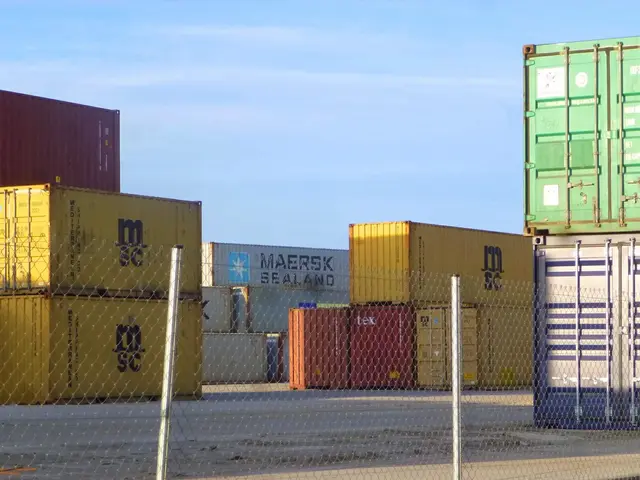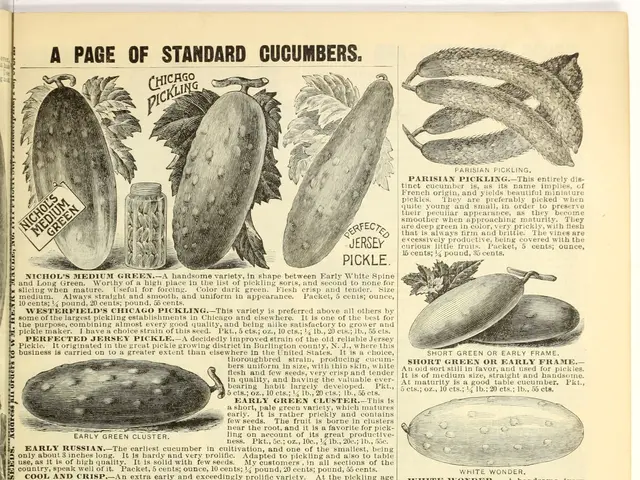Unmasking the Counterfeit Craze in Dresden's Underworld
Customs authorities confiscate counterfeit merchandise valued at millions in Saxony - Customs Authorities Seize Fake Merchandise Valued at Millions in Saxony
When the confetti of the booming city of Dresden settles, the grimy side of illicit activity in the heart of Saxony surfaces. The local customs service has been on a relentless pursuit of millions in counterfeit branded items, marking the year 2024 with a staggering seizure of over 207,000 counterfeit goods worth a whopping 178 million euros.
The seasoned customs officials have seen it all, from luxury timepieces and dazzling jewelry, to smart gadgets, sports gear, and car accessories. Infractions weren't limited to just these pricey items, as around 3.7 million cigarettes, 44.5 kilograms of tobacco, and 365 kilograms of water pipe tobacco, and over 1.6 tons of narcotics were also intercepted—including a spiraling 490 kilograms of cocaine.
While the customs authority is primarily known for their role in collecting substantial taxes for both the European Union (EU) and Germany, they have displayed an unyielding determination to tackle the dark economic web. In 2024 alone, they garnered a remarkable 2.5 billion euros in tax collections for the alliance. The biggest chunk came from the import turnover tax at approximately 1.6 billion euros. Custom duties made a significant contribution to the EU budget with 77.2 million euros, and approximately 44 million euros were collected as outstanding motor vehicle taxes—with a hefty sum of over 6.8 million euros alone.
Joining forces with Financial Control Schwarzarbeit, the team delved into the chilling underbelly of black market activities. They identified over 20 million euros in damages caused by the black economy and brought 3,800 criminal proceedings and 990 administrative offenses to justice—the courts responding with almost 1.1 million euros in fines and an additional 644,000 euros in penalties. The finance unit also seized over 2.7 million euros in various currencies—including silver coins, diamonds, and even protected animal products.
While the focus of customs control often centered on counterfeit goods and the black economy, efforts to stymie drug trafficking were equally steadfast. Customs and law enforcement agencies invested in advanced technology and intelligence gathering to combat the scourge of illegal narcotics. Parallel investigations with international partners proved vital in tackling the immense cross-border drug trade.
If we take a closer look at the origins of counterfeit goods and drug trafficking, the global supply chain, online marketplaces, and organized crime groups loom large. Countries with lax regulations or heavy manufacturing capabilities, such as China, often serve as secondary hubs for counterfeit goods, while the internet has become a breeding ground for online marketplaces selling fakes.
All these efforts, spearheaded by Dresden's customs department and the local police force, have resulted in the dismantling of illicit networks and the prevention of substantial financial losses. But the war on counterfeit goods and drug trafficking is far from over, necessitating a continued vigilance and a united front against these underground economies.
- The customs department and Financial Control Schwarzarbeit have been advocating for stricter community policy and employment policy within their organization, aiming to enhance their efforts against counterfeit goods, environmental-science violations, and illicit drug trafficking.
- In the wake of the staggering seizure of counterfeit goods and drug trafficking cases, the local customs service has emphasized the importance of science and sports in their training programs, with a view to better understand the complexities of global supply chains and online marketplaces, and to combat these challenges more effectively.







